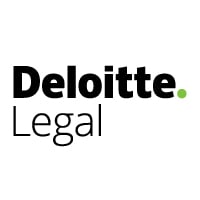
General counsel & board secretary | DeA Capital Real Estate


Roberto Schiavelli
General counsel & board secretary | DeA Capital Real Estate
Team size: 17
How do you approach managing legal aspects during periods of instability or crises, and how does your legal strategy align with the broader business strategy to ensure the organisation’s resilience?
Managing legal aspects during periods of instability or crisis requires a proactive and coordinated approach, particularly within the context of a real estate asset management company. The primary objective is to ensure business continuity across managed funds and safeguard investors’ interests, while maintaining full compliance with regulatory requirements.
Operationally, this means continuously monitoring the legal and regulatory framework – both at national and EU levels – to anticipate potential impacts on fund structures, asset operations, and governance frameworks. In times of crisis, cross-functional legal task forces are activated to work closely with fund management, risk, and compliance teams, identifying emerging risks and implementing timely preventive or corrective measures.
The legal strategy is closely aligned with the broader business strategy: both aim to preserve value and support the long-term stability and performance of managed portfolios. The legal function contributes to organisational resilience by ensuring solid contractual arrangements, prudent litigation management and structured engagement with regulators and institutional stakeholders.
What are the major cases or transactions you have been involved in recently?
Recently, the main activities have included a number of important transactions and legal initiatives that highlight both the complexity and strategic significance of real estate asset management. These have involved the establishment and launch of investment vehicles focused on logistics assets, the development of a pan-European fund, and the negotiation of deals related to innovative investments that capture emerging market trends including infrastructure investments, with involvement in transactions expected to reach a total value of approximately €2 bn.
On the regulatory side, efforts have focused on implementing ESG compliance frameworks aligned with SFDR and EU Taxonomy regulations, as well as updating internal governance structures to meet evolving supervisory requirements.
Throughout these projects, legal support has been closely integrated with investment and asset management teams, providing essential assistance in negotiations, risk management, and ensuring that each transaction aligns with the overall investment strategy and governance standards.
What emerging technologies do you see as having the most significant impact on the legal profession in the near future, and how do you stay updated on these developments?
Emerging technologies such as artificial intelligence, document automation, and advanced data analytics are increasingly shaping the legal function, particularly by streamlining due diligence processes, enhancing contract and document management, and supporting regulatory compliance. Ongoing updates on legal tech developments are maintained through participation in industry events and dedicated webinars. The legal function is supported by technical resources that facilitate the integration of these tools into daily workflows, thereby improving overall efficiency and service quality.
In your opinion, what are the main trends that are salient in your country currently?
In Italy, some of the most relevant current trends in the legal and economic context include the increasingly structured integration of ESG criteria into governance policies and investment strategies, particularly in the real estate and financial sectors. Regulatory developments at both EU and national levels, especially in the areas of sustainability, transparency, and digitalisation, are having a growing impact on organisational structures and compliance processes. At the same time, there is rising interest in alternative investment vehicles, urban regeneration initiatives, and public-private partnerships, reflecting a broader market shift toward long-term, sustainable investment approaches.
Politically and economically, the focus remains on ensuring stability, creating an attractive environment for foreign investors, and implementing reforms designed to enhance competitiveness and streamline administrative processes, thereby fostering sustainable economic growth and long-term investment.